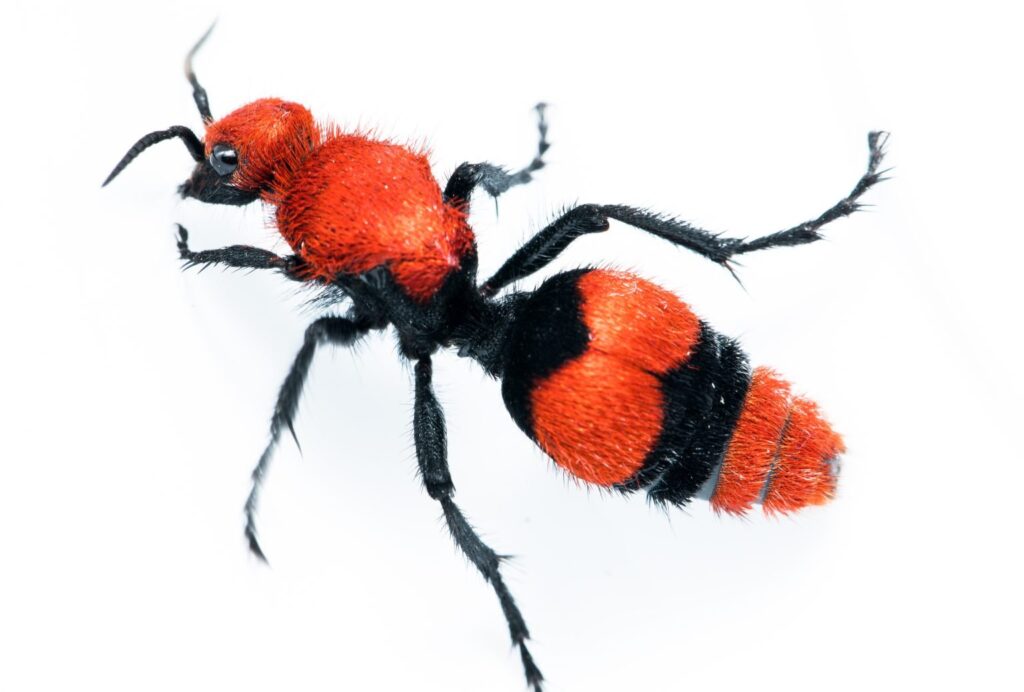Unlike the name suggests, the Velvet Ant isn’t actually an ant, it’s really a type of wasp and only the males can fly. Their nickname Cow Killer comes from the severely painful bite, or sting, of a female. Their sting can cause an allergic reaction and is considered one of the more powerful bites in the insect world.
Slightly smaller than an inch, the Velvet Ant has black legs and thin, red hair on their head, thorax and large abdomen. These are not social pests and will most likely be spotted alone versus in a group.
Where to Find Velvet Ants
This pest can be found in a wide variety of environments, including forested areas near the base of trees, sandy areas, open and sunny pastures or space, and flower beds. Basically, they prefer dry areas instead of spaces that are frequently damp or wet. They can be found all over Alabama, especially during the warm and dry months.
Eating and Reproduction
Velvet Ants consume a meal heavy in plant nectar, which is why they can typically be found in wooded areas, flower beds and other areas where nectar is easily available. These environments are also popular with another pest, the cicada killer. They lay their eggs on the cicada killer’s larva, and once the eggs hatch, the new velvet ants feed on the cicada killer larvae, effectively killing the other pest.
Velvet Ant Damage
Fortunately, Velvet Ants are not a significant threat to people and they are not interested in coming indoors. The best thing to do if you spot a Velvet Ant is to use a fly swatter to remove the pest. Again, since they are not social, they generally are found individually and not in groups. There is no need to worry about a Velvet Ant invasion.
Stings or bites from a Velvet Ant can cause damage to humans or animals. It’s a good idea to consult a health care professional if bitten by a Velvet Ant as some people can have severe reactions.
If you see a Velvet Ant and don’t want to kill it, feel free to capture it in a small jar and contact our technicians at United Pest & Turf Control. Just remember to not touch it. Our techs are always interested in studying and collecting local pests.
Meet the Velvet Ant (a.k.a. Cow Killer) in North Alabama and Southern Tennessee
Serving North Central Alabama and South Central Tennessee
Limestone County
Ardmore
Home » Meet the Velvet Ant (a.k.a. Cow Killer)


